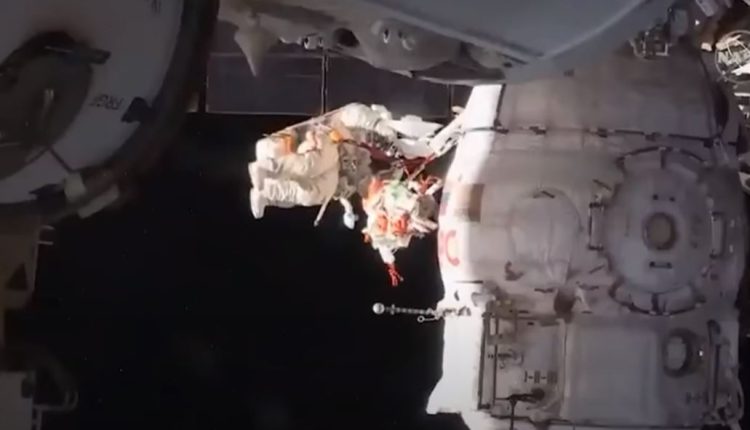
Russian cosmonaut Oleg Kononenko has etched his name in the annals of space exploration, setting a new world record for the longest cumulative time spent in space.
Roscosmos, Russia’s space corporation, confirmed this historic achievement, surpassing the previous record held by compatriot Gennady Padalka of over 878 days in orbit.
Oleg Kononenko 1,000 Days in Orbit
At 0830 GMT, Kononenko officially surpassed Padalka’s record, with projections indicating he will reach an extraordinary milestone of 1,000 days in space on June 5.
By late September, he is anticipated to have amassed a total of 1,110 days in space, showcasing his unwavering dedication to advancing the frontiers of space exploration.
In an interview from the International Space Station (ISS), orbiting approximately 263 miles (423 km) from Earth, Kononenko expressed his humility about the record.
“I fly into space to do my favorite thing, not to set records,” he stated to TASS. “I am proud of all my achievements, but I am more proud that the record for the total duration of human stay in space is still held by a Russian cosmonaut.”
The 59-year-old cosmonaut surpassed Gennady Padalka’s record of 878 days, 11 hours, 29 minutes, and 48 seconds in space.
Reflecting on the challenges of extended space missions, Kononenko acknowledged the physical impacts of weightlessness and emphasized the crucial role of regular exercise in mitigating these effects.
He also touched on the emotional toll, recognizing the realization of missed family moments upon returning to Earth.
Read more: WHO Projections: 77% Surge In New Cancer Cases Expected By 2050
Challenges in Modern Cosmonaut Training and Space Exploration

“I do not feel deprived or isolated,” he remarked. “It is only upon returning home that the realization comes that for hundreds of days in my absence, the children have been growing up without a papa. No one will return this time to me.”
Despite the advancements in communication technology, Kononenko shed light on the growing complexities in spaceflight preparation due to intricate systems and experiments.
“The profession of a cosmonaut is becoming more complicated. The systems and experiments are becoming more complicated. I repeat, the preparation has not become easier,” he explained.
Kononenko’s space journey commenced in 2008, and his current mission to the ISS, launched in 2023 aboard a Soyuz MS-24, underscores Russia’s continued engagement in the global space community.
The ISS remains a key arena of collaboration between the United States and Russia, emphasizing the enduring spirit of international cooperation in the field of space exploration, despite diplomatic tensions in other areas.
Read more: Wives Of Russian Soldiers Mobilize, Urging Release Of Detained Spouses In Ukraine

